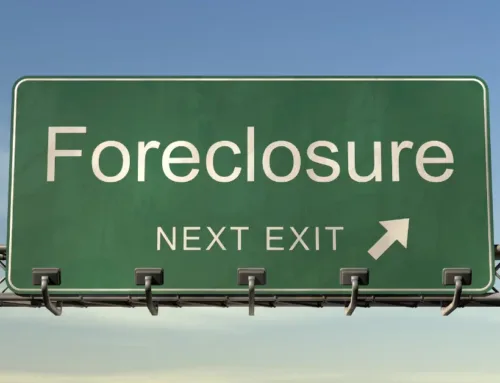Eminent domain grants local, state, and federal governments the legal authority to take private property for public use. But what happens when the land you’ve built your life on is suddenly no longer yours? While this may sound alarming, the law requires the government to provide property owners with fair compensation—though what’s deemed ‘fair’ is often up for debate. Whether it’s for road expansions, utility installations, or community infrastructure, eminent domain can uproot lives and livelihoods, leaving property owners to navigate a tangled legal web.
Have you received notice that your property will be taken? Do you feel the compensation offered is unjust? Protecting your financial future starts with understanding your rights and options. Partnering with a real estate attorney experienced in eminent domain cases can make all the difference in securing just compensation.
Key Takeaways
- Eminent domain empowers the government to acquire private property for public use but guarantees fair compensation.
- Projects like road construction, power lines, and public infrastructure are common reasons for land acquisition.
- Property owners have rights to challenge government offers, particularly when compensation feels inadequate.
- Navigating valuation, managing negotiation, and challenging unfair conditions are critical for the best outcome.
- A skilled eminent domain attorney ensures your interests are protected and your property value maximized.
Now that we’ve outlined the basics of eminent domain, let’s delve deeper into its implications, your rights as a property owner, and strategies to ensure you are treated fairly throughout the process.
For What Purposes Can the Government Take Private Property?
The government can take private property for a variety of reasons, but it must be for public or commercial purposes that benefit the community. Some examples include:
- Sewer Pipes: Ensuring proper sanitation and public health.
- Road Expansion: Improving transportation and reducing congestion.
- Power Lines: Providing reliable access to electricity for homes and businesses.
- Shopping Centers: Boosting economic development and creating jobs.
- Ballparks: Building recreational spaces for community enjoyment.
- Access to Water Sources: Securing clean and sufficient water supply.
- Oil and Gas Pipelines: Supporting energy infrastructure and distribution.
There are numerous justifications for the government to acquire private property under eminent domain, but the common thread is the perceived public benefit. Property owners are typically notified of the intended use, which may offer insight into how the project could impact the community and the owner’s rights. The history of federal eminent domain use highlights how these laws have evolved to balance public needs and property owners’ rights.
Can You Refuse to Give Up Your Property?

Can you stop the government from taking your property under eminent domain? Unfortunately, it’s almost impossible to keep your property once eminent domain laws are applied. The government has the legal right to take private property if specific conditions are met.
Conditions for Eminent Domain:
- The property will serve a publicly beneficial purpose once acquired, such as infrastructure improvements or community projects.
- The government must offer just compensation based on the property’s fair market value.
- Property owners must have the opportunity for fair representation and negotiation.
When Can You Challenge Eminent Domain?
If any of these conditions are violated—such as inadequate compensation, lack of public purpose, or procedural issues—you have the right to challenge the government’s claim. While the process may seem daunting, exercising your rights ensures you are not unfairly treated.
The Legal Basis for Eminent Domain:
The Fifth Amendment of the U.S. Constitution guarantees protection for property owners, stating: “nor shall private property be taken for public use, without just compensation.” This ensures that property owners are compensated fairly when their land is taken for public or commercial use, balancing public needs with individual rights.
Steps in the Eminent Domain Process
Understanding the steps involved in the eminent domain process can empower property owners to protect their rights and prepare for what’s ahead. Below is a breakdown of the typical stages:
1. Initial Notification
The process begins with a formal notice from the government or an agency stating its intent to acquire the property. This notification outlines the purpose of the acquisition, such as infrastructure improvements, and provides an overview of the next steps.
2. Appraisal and Offer
The government conducts an appraisal to estimate the property’s fair market value. Based on this assessment, they extend an initial offer as compensation. This offer is often a starting point for discussions.
3. Negotiation Phase
Property owners have the right to negotiate if the initial offer seems unfair. Providing evidence, such as an independent appraisal, can strengthen your case for higher compensation. This phase is critical for ensuring you receive a just offer.
4. Condemnation Proceedings
If negotiations fail, the government initiates condemnation proceedings to acquire the property through the courts. This step legally grants the government ownership while allowing the owner to present their case.
5. Trial and Fair Compensation Determination
In court, both sides present evidence to establish the property’s fair market value. A judge or jury ultimately decides on the compensation amount, which is binding unless appealed.
6. Payment and Transfer of Ownership
After the court’s decision, the government pays the determined amount to the property owner. Ownership of the property is then officially transferred to the government or the agency involved.
7. Appeals Process (Optional)
If the property owner disagrees with the court’s decision, they can appeal. This step can be complex, requiring the expertise of an eminent domain attorney to navigate legal challenges effectively.
Do I Have to Accept the Government’s Offer?
The keyword in the Constitution’s wording is “just compensation.” This means the government is obligated to make a fair offer for your property. But what happens when the offer feels far from fair? If you believe the amount doesn’t reflect your property’s true value, you have the right to push back.
Your property could be worth significantly more than the government’s initial offer, and you shouldn’t feel pressured to accept a lowball figure. While some offers may seem fair—or even generous—it’s not uncommon for the government to aim low, hoping you’ll accept without argument.
Don’t leave money on the table. Consulting with a skilled real estate attorney can help you assess the offer, gather supporting evidence, and negotiate for the compensation you deserve. Protecting your financial future starts with understanding your rights and advocating for fair value.
When Eminent Domain Can Be Challenged

Eminent domain may feel like an unstoppable force, but property owners are not powerless. While the government has the legal authority to exercise eminent domain, there are specific situations where you can push back. Understanding these circumstances is critical to protecting your rights and ensuring that you are treated fairly.
1. Lack of Public Purpose
Eminent domain relies on the principle that property must be taken for a valid public purpose—such as building roads, schools, or other community infrastructure. But what if the stated purpose isn’t truly for public benefit? If the government’s justification seems dubious, you may have grounds to challenge their claim. After all, is it public use if private interests benefit more than the community?
2. Inadequate Compensation
“Just compensation” is a constitutional promise, but is the offer you received truly fair? If the compensation doesn’t reflect the fair market value of your property—or fails to account for unique characteristics that enhance its value—you have the right to challenge it in court. Remember, just compensation isn’t about convenience for the government; it’s about justice for you.
3. Procedural Violations
Even governments must follow the rules. Procedural violations often undermine the legitimacy of an eminent domain case. Common issues include:
- Failing to provide adequate notice.
- Skipping negotiation efforts before condemnation proceedings.
- Ignoring state-specific eminent domain laws.
When the process feels rushed or irregular, it may be worth investigating whether your rights were violated.
4. Bad Faith or Misuse of Power
What happens when eminent domain is wielded as a tool for private gain? If the government’s actions appear to prioritize private entities over public interests—or if the stated purpose feels like a mere guise—this could indicate bad faith. Courts closely scrutinize whether such actions are justified.
5. Environmental or Zoning Issues
Can the government’s plans hold up against existing regulations? If the proposed use of your property conflicts with environmental laws or zoning restrictions, you might have strong grounds to halt or delay the acquisition. These challenges not only protect your property but can also highlight broader community concerns.
6. Disproportionate Taking
Does the government really need all the land they’re claiming? Sometimes, acquisitions go beyond what’s necessary, leading to disproportionate taking. If the size or scope of the acquisition seems excessive or unjustified, you can question whether the action truly aligns with the stated purpose.
How is Just Compensation for the Property Determined?
Typically, just compensation is considered to be the fair market value of the property at the time of the taking. This is the way the government determines what to offer you for your property. But if you have reason to believe that your property is worth more than what you are offered, you can decline the offer. However, you will then need to prove why you believe your property has a higher value. An experienced real estate lawyer can help you build your case.
Owner’s Rights and Strategies for Negotiation
When faced with eminent domain, property owners often feel overwhelmed—but you have rights, and with the right strategy, you can secure fair compensation. Here’s how to navigate the process effectively and protect what matters most:
Understand Your Rights
Under eminent domain law, property owners are entitled to just compensation—the fair market value of their property. But what happens when the government’s offer doesn’t feel fair? You have the right to negotiate and, when necessary, challenge procedural errors or unjust practices to ensure you receive what you’re owed.
1. Get an Independent Appraisal
The government’s valuation isn’t the final word. Obtaining an independent appraisal provides an accurate assessment of your property’s worth, factoring in unique characteristics the government may have overlooked. Armed with this evidence, you can confidently advocate for better compensation.
2. Highlight Key Property Features
Does your property have qualities that make it truly valuable? Emphasizing its unique features can strengthen your case for higher compensation, including:
- Commercial Zoning Potential: Future business opportunities tied to the location.
- Historical or Environmental Significance: Unique attributes that increase desirability or regulatory value.
- Accessibility: Proximity to major roads, utilities, or urban centers.
3. Review the Government’s Appraisal
Don’t assume the government’s appraisal is flawless. Carefully review their valuation to identify omissions, undervaluation, or flawed methodologies. Highlighting these discrepancies gives you leverage to negotiate a more accurate and equitable offer.
4. Negotiate Additional Compensation
Fair market value is just one piece of the puzzle. You may be entitled to additional compensation for:
- Relocation Costs: Expenses associated with moving.
- Business Losses: Disruptions to your livelihood.
- Severance Damages: Loss of value in remaining property due to the taking.
5. Work with an Experienced Attorney
Eminent domain is a complex legal process, and having an attorney by your side can make all the difference. A skilled eminent domain attorney can:
- Assess the government’s offer.
- Represent your interests in negotiations or court.
- Ensure all legal procedures are followed, protecting your rights.
By understanding your rights and working strategically, you can ensure the government provides compensation that reflects the true value of your property and its impact on your life.
How is Fair Market Value Determined in an Eminent Domain Case?
If your eminent domain case goes to court, a jury will determine the fair market value of your property. A variety of factors will be taken into consideration, including:
If your eminent domain case goes to court, a jury will determine the fair market value of your property. A variety of factors will be taken into consideration, including:
- Size of the Property: Larger properties often hold higher market value, but the size must also be assessed in relation to its usability and development potential.
- Accessibility: The ease of access to the property plays a critical role. Properties near main roads, highways, or transportation hubs are typically valued higher due to their convenience and desirability.
- Zoning: The zoning classification of the property (e.g., residential, commercial, industrial) significantly impacts its value. Properties zoned for commercial or mixed-use purposes often have greater market potential.
- Unique Characteristics: Features such as historical significance, natural resources, or scenic views can add to the property’s appeal and monetary worth.
- Level of Development: Developed properties with existing infrastructure, such as utilities, buildings, or roads, are usually more valuable than undeveloped land.
- Current Use or Potential Use: The present function of the property-such as agricultural, residential, or commercial use-affects its valuation. Additionally, its potential for future development or alternative uses can increase its worth.
Understanding how these factors interplay can help property owners and their attorneys challenge or negotiate the government’s valuation, ensuring that the property is accurately appraised during eminent domain proceedings.
Is it Worth Fighting an Eminent Domain Case?
Losing your property to eminent domain can feel like an uphill battle, but standing up for fair compensation is not just about the money—it’s about safeguarding your future. Whether the government is taking your home, a family heirloom property, or a valuable commercial asset, receiving just compensation can make the difference between starting over with stability or facing unnecessary financial strain.
Fighting for your rights isn’t just a possibility—it’s a necessity. With the guidance of an experienced eminent domain attorney, you can navigate the complexities of the process and significantly improve your chances of securing an offer that truly reflects the value of your property. While you may not be able to stop the government from acquiring your property, you can ensure they uphold their obligation to pay you what you deserve. After all, isn’t protecting your financial future worth the fight?
Kelly Legal Group Can Help You Get Fair Compensation for Your Property
At Kelly Legal Group, our eminent domain attorneys specialize in helping property owners fight for their rights and fair compensation. With decades of combined experience, we’ll guide you through the complex legal process and advocate for your interests every step of the way.
Don’t settle for less than you deserve. Call us at (737) 257-4532 or contact us today to schedule your consultation. Let us help you turn this challenging situation into an opportunity to secure your financial future.






